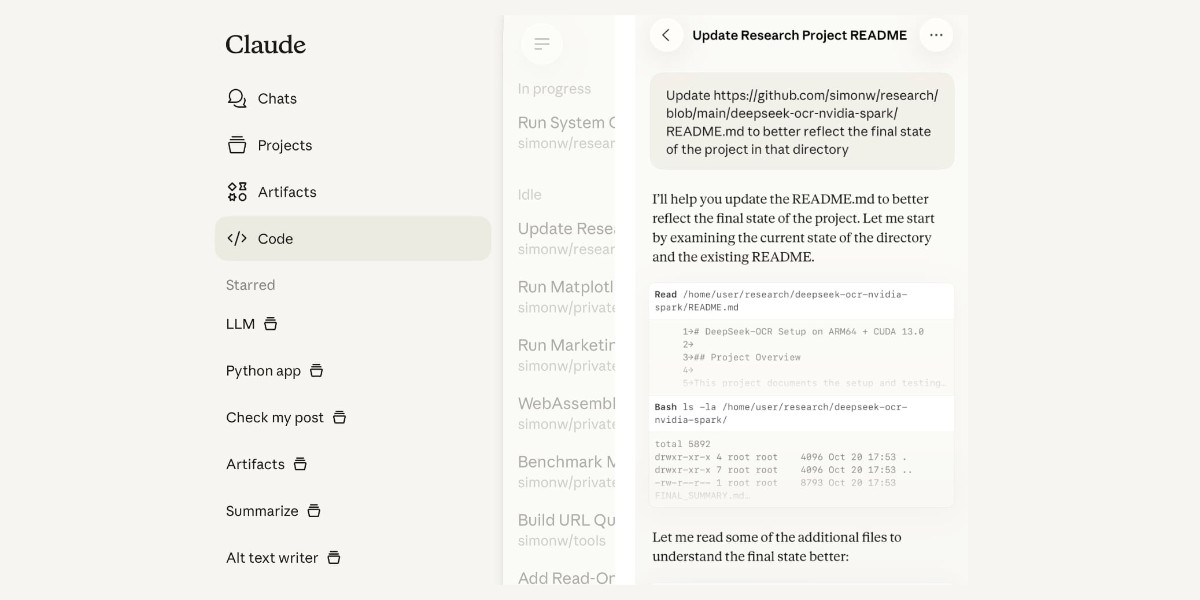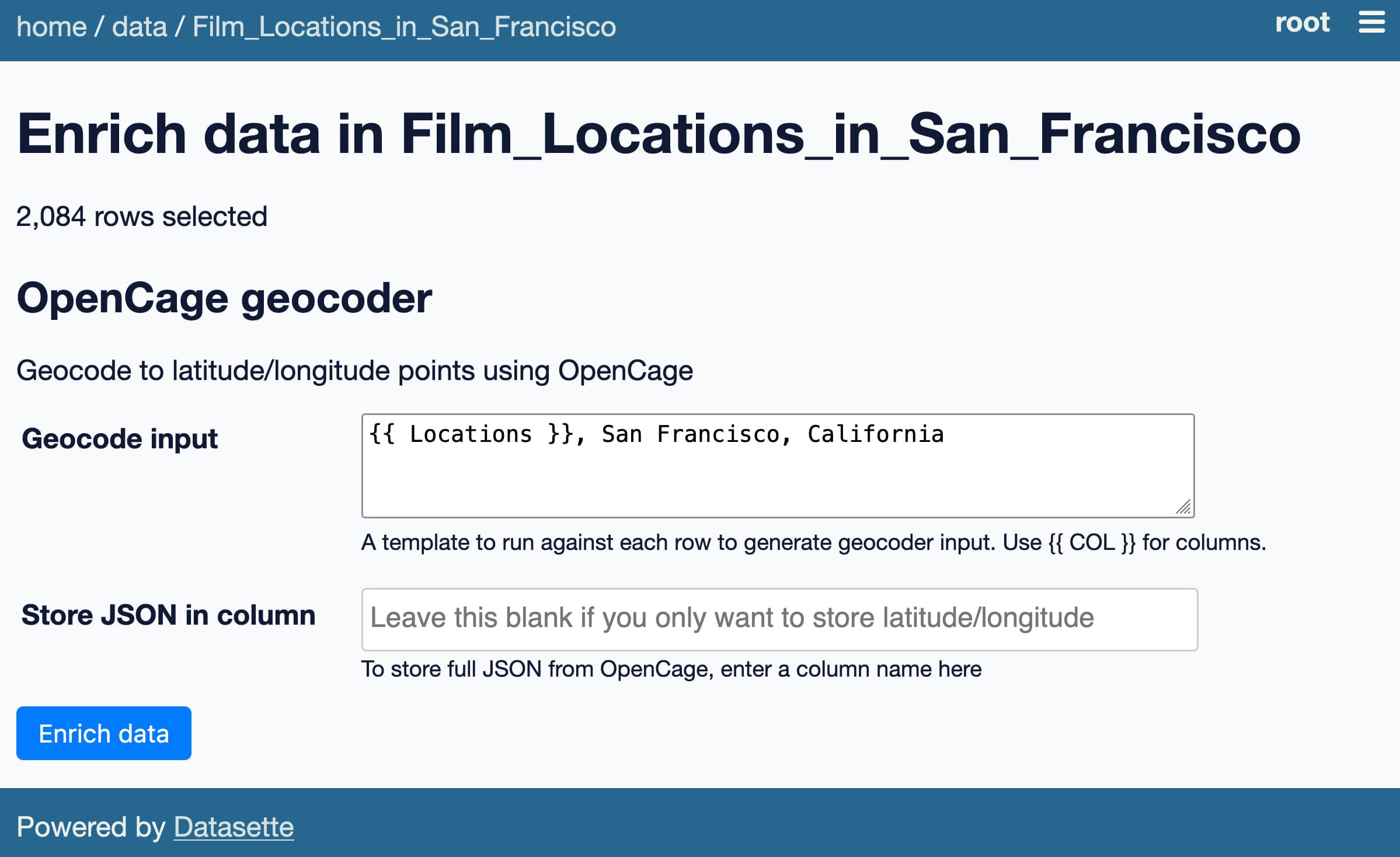8 posts tagged “jinja”
2025
Claude Code for web—a new asynchronous coding agent from Anthropic
Anthropic launched Claude Code for web this morning. It’s an asynchronous coding agent—their answer to OpenAI’s Codex Cloud and Google’s Jules, and has a very similar shape. I had preview access over the weekend and I’ve already seen some very promising results from it.
[... 1,434 words]2024
MiniJinja: Learnings from Building a Template Engine in Rust (via) Armin Ronacher's MiniJinja is his re-implemenation of the Python Jinja2 (originally built by Armin) templating language in Rust.
It's nearly three years old now and, in Armin's words, "it's at almost feature parity with Jinja2 and quite enjoyable to use".
The WebAssembly compiled demo in the MiniJinja Playground is fun to try out. It includes the ability to output instructions, so you can see how this:
<ul>
{%- for item in nav %}
<li>{{ item.title }}</a>
{%- endfor %}
</ul>Becomes this:
0 EmitRaw "<ul>"
1 Lookup "nav"
2 PushLoop 1
3 Iterate 11
4 StoreLocal "item"
5 EmitRaw "\n <li>"
6 Lookup "item"
7 GetAttr "title"
8 Emit
9 EmitRaw "</a>"
10 Jump 3
11 PopFrame
12 EmitRaw "\n</ul>"2023
Datasette Enrichments: a new plugin framework for augmenting your data
Today I’m releasing datasette-enrichments, a new feature for Datasette which provides a framework for applying “enrichments” that can augment your data.
[... 1,202 words]2021
New Major Versions Released! Flask 2.0, Werkzeug 2.0, Jinja 3.0, Click 8.0, ItsDangerous 2.0, and MarkupSafe 2.0. Huge set of releases from the Pallets team. Python 3.6+ required and comprehensive type annotations. Flask now supports async views, Jinja async templates (used extensively by Datasette) “no longer requires patching”, Click has a bunch of new code around shell tab completion, ItsDangerous supports key rotation and so much more.
2019
datasette-template-sql (via) New Datasette plugin, celebrating the new ability in Datasette 0.32 to have asynchronous custom template functions in Jinja (which was previously blocked by the need to support Python 3.5). The plugin adds a sql() function which can be used to execute SQL queries that are embedded directly in custom templates.
2010
Flask 0.1 Released. Armin’s Flask (a Python microframework built around Werkzeug and Jinja2) is looking pretty solid for a two week old project—extensive documentation, comprehensive unit test support (and example applications with unit tests) and some very tidy API design.
2008
Replacing Django’s Template Language With Jinja2. Part of Will Larson’s series on taking advantage of Django’s loose coupling.
Jinja2 Final aka Jinjavitus Released. The Jinja template engine now has auto-escaping as an optional feature, disabled by default. Worth considering as an almost drop-in replacement for Django’s template language if features such as macros and compilation to Python code appeal to you.

